People with learning disabilities face many of the same mental health challenges as anyone else—but they may experience additional barriers that can make accessing support and being understood more difficult. Research shows that individuals with learning disabilities are at a higher risk of experiencing poor mental health, and sadly, they may also be at increased risk of suicidal thoughts and behaviour.
Why Are People with Learning Disabilities More at Risk?
Several factors can contribute to a higher risk of suicide among people with learning disabilities, including:
-
Social isolation: Many people with learning disabilities experience loneliness or struggle to build meaningful relationships.
-
Bullying and stigma: Discrimination and negative attitudes can affect self-esteem and contribute to feelings of worthlessness or despair.
-
Communication barriers: It can be harder to express emotions or ask for help, especially if services aren’t tailored to individual communication needs.
-
Lack of appropriate mental health support: Services may not always recognise or respond effectively to the mental health needs of people with learning disabilities.
It’s important to recognise that people with learning disabilities can and do experience a full range of emotions—including depression, anxiety, and suicidal thoughts. However, their distress is sometimes misunderstood or dismissed as simply “part of their disability.” This can delay vital support and leave people feeling unheard and alone.
What Can Help?
-
Accessible mental health services: Services should be adapted to meet the needs of people with learning disabilities, using simple language, visual aids, and longer appointment times where needed.
-
Training for professionals: GPs, mental health workers, and support staff should receive training to recognise the signs of suicide risk in people with learning disabilities and know how to respond appropriately.
-
Supportive environments: Families, carers, and support networks play a crucial role in spotting changes in behaviour, offering emotional support, and helping individuals find their voice.
-
Encouraging open conversations: Talking about feelings and mental health should be normalised from an early age for everyone—including people with learning disabilities.
You Are Not Alone
If you or someone you care about has a learning disability and is struggling with thoughts of suicide, help is available. You are not alone, and you deserve to be listened to and supported.
-
Contact a GP or mental health professional and ask for an urgent appointment.
-
Call Samaritans at 116 123 – free, 24/7, and confidential.
-
Reach out to a local support organisation, on our Helpline page.

